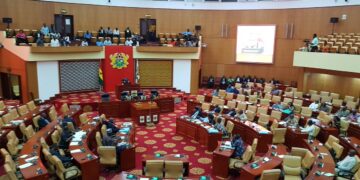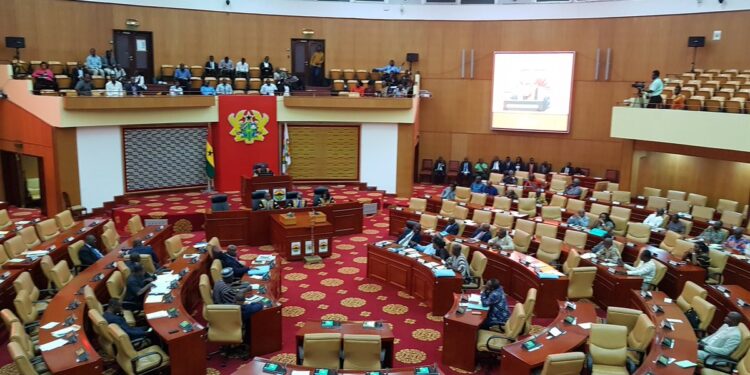The Constitutional Review Consultative Committee (CRCC) has submitted its much-anticipated report to President Nana Addo Dankwa Akufo-Addo, recommending a cap on the size of Ghana’s Parliament at 277 elected members.
This proposed amendment seeks to address concerns about the growing number of constituencies and their implications for governance and resources.
The CRCC proposes changes to Article 93 and Article 47 of the 1992 Constitution.
According to the committee, Article 93 should be amended to state: “There shall be a Parliament of Ghana which shall consist of not more than two hundred and seventy-seven elected members.” Similarly, Article 47 would be revised to read: “Ghana shall be divided into as many constituencies for the purpose of election of Members of Parliament as the Electoral Commission may prescribe; however, the number of constituencies shall not exceed two hundred and seventy-seven.”
Rationale Behind the Cap
The committee explained its reasoning in the Executive Summary of the report, highlighting the challenges of reducing the number of constituencies. “Recommending a lesser number than the existing number will require that certain constituencies be scrapped. This could lead to needless acrimony as political parties may resist such changes, especially in their strongholds,” the report noted.
The CRCC settled on 277 as a logical limit, considering that the current number of constituencies is 276. “As an odd number is preferable for voting, the upper limit of 277 provides a balanced solution,” the report added.
Some other constitutional recommendations
The CRCC’s report also includes recommendations on other constitutional issues, such as:
- Ministerial Appointments: MPs appointed as ministers should vacate their parliamentary seats.
- Cap on Ministers: The number of ministers and deputy ministers should be limited to 55.
- Asset Declaration: Public officers must have their assets audited and verified by the Auditor-General.
- Presidential Taxation: The committee proposed the removal of tax exemptions for the President to align with the principle of equality before the law.
Chaired by Clara Kowlaga Beeri Kasser-Tee, Esq., the CRCC comprised representatives from 12 institutions, including the Ghana Bar Association, the Judicial Service, and the University of Ghana School of Law.
The recommendations will now move to the Ministry of Parliamentary Affairs and other stakeholders for deliberation and possible amendments to the 1992 Constitution.

































